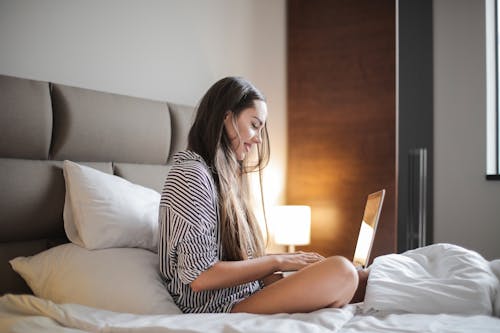
Doubtlessly you’ve seen all the advertisements for telehealth or online therapy options that are newly available because of the COVID-19 pandemic. Whatever you think about the pandemic, online therapy for therapists is the new reality we live in.
There are plenty of articles speaking to the effectiveness of online therapy. There are caveats, of course, and not everyone responds the same via phone or video as in person. That being said, study after study shows that traditional talk therapy has the same therapeutic outcomes regardless of being in person vs long distance.
I’ve watched my profession adjust to the new realities of pandemic lockdown. As we start opening back up, therapists that embraced online therapy during the initial stages of lockdown will be deciding when going back to their offices and their traditional methods of therapy is the right next step.
I think this is a mistake. I have been doing traditional face to face therapy since 2012 and online therapy since 2019. I think the pandemic has shown what I have suspected for years, and have seen in my experience: online therapy provides a more effective environment for psychotherapy and mental health treatment. Here is why:
According to several studies, the number one reason that people get better, feel relief, and meet therapeutic outcomes is not because of the treatment methodology, or the therapist’s knowledge and expertise. Consistently across every study for decades, the most important factor that needs to be present for successful therapeutic outcomes is the therapeutic relationship. Also known as therapeutic rapport, the relationship between the psychotherapist and the client is the most important factor in client satisfaction.
The first goal of every therapist when meeting a client is to establish, by word and deed, that the client is safe. It’s why we disclose how your personal health information, or PHI, is safeguarded, and go to great lengths to keep it safe (multiple physical locks and barriers, encryption, methodologies on what we write down and how we store it, etc.). It’s why we have extensive training in communication skills that emphasize acceptance, empathy, and non-judgement. It’s why we establish personal and professional boundaries when interacting with clients. It’s also why our waiting rooms tend to look like mediation centers instead of business offices.
It won’t matter if your therapist is the number one expert in their field. It won’t matter if your counselor has more degrees than a thermometer. If you don’t feel safe, you won’t be able to open up.
This is where online therapy is superior to traditional therapy: by it’s very structure and format, it creates a safe space for the client in a way that face to face therapy cannot, no matter how many zen rock garden displays or pictures of plants you have on your office walls. It does this in a number of ways:
- Location: Sessions are held in a place of the client’s choosing, usually at home. The familiarity, comfort, and safety of the surroundings for the client is superior to an office that isn’t their own.
- Physical Distance: It is much easier to feel safe if you are not physically in a room by yourself with a stranger.
- Time: Going to traditional therapy requires significant time investments, in which anything can go wrong. If the client has any doubts about going, or dealing with a certain tough issue, any kind of delay can tip the scales in favor of cancellation.
- Social Media: People are now, more than ever, very comfortable with online communication; for many this is their preferred mode.
As technology increases the ability for more and more people to get access to mental health services, people are using technology to change the way they communicate, manage relationships, and manage safety. For these reasons, I believe that online therapy is not only superior to traditional therapy, it is going to become the new paradigm of psychotherapy in the future.
Someday, hopefully soon, I’ll be able to decorate my virtual office any way I wish; for now, I’m happy with the nice forest painting I have in the background. #holodecktherapy #whereismyflyingcar
If you enjoyed this article, please link and share. If you would like me to write about a specific topic, please let me know down below in the comments, or at edwin@thetherapywizard.com.